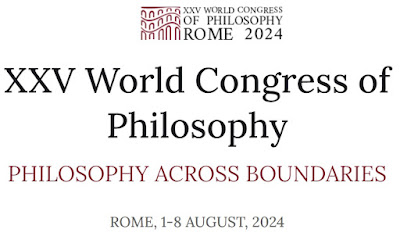Pre-Socratic philosophy
Education / Philosophy / Western philosophy / Ancient Greek philosophy / Pre-Socratic philosophy
Pre-Socratic philosophy is ancient Greek philosophy before Socrates and schools contemporary to Socrates that were not influenced by him. In Classical antiquity, the pre-Socratic philosophers were called physiologoi (Greek: φυσιολόγοι; in English, physical or natural philosophers). Their inquiries spanned the workings of the natural world as well as human society, ethics, and religion, seeking explanations based on natural principles rather than the actions of supernatural gods. They introduced to the West the notion of the world as a kosmos, an ordered arrangement that could be understood via rational inquiry. Coming from the eastern and western fringes of the Greek world, the pre-Socratics were the forerunners of what became Western philosophy as well as natural philosophy, which later developed into the natural sciences (such as physics, chemistry, geology, and astronomy). Significant figures include: the Milesians, Heraclitus, Parmenides, Empedocles, Zeno of Elea, and Democritus.
Overview
Aristotle was the first to call them physiologoi or physikoi ("physicists", after physis, "nature") and differentiate them from the earlier theologoi (theologians), or mythologoi (story tellers and bards) who attributed these phenomena to various gods. Diogenes Laërtius divides the physiologoi into two groups: Ionian, led by Anaximander, and Italiote, led by Pythagoras.
Focus and aims
The pre-Socratic philosophers rejected traditional mythological explanations of the phenomena they saw around them in favor of more rational explanations. Their efforts were directed to the investigation of the ultimate basis and essential nature of the external world. They sought the material principle (archê) of things, and the method of their origin and disappearance. As the first philosophers, they emphasized the rational unity of things and rejected supernatural explanations, instead seeking natural principles at work in the world and human society. The pre-Socratics saw the world as a kosmos, an ordered arrangement that could be understood via rational inquiry. Pre-Socratic thinkers present a discourse concerned with key areas of philosophical inquiry such as being, the primary stuff of the universe, the structure and function of the human soul, and the underlying principles governing perceptible phenomena, human knowledge and morality.
It may sometimes be difficult to determine the actual line of argument some pre-Socratics used in supporting their particular views. While most of them produced significant texts, none of the texts have survived in complete form. All that is available are quotations, and testimonies by later philosophers (often biased) and historians, and the occasional textual fragment.
These philosophers asked questions about "the essence of things":
From where does everything come?
From what is everything created?
How do we explain the plurality of things found in nature?
How might we describe nature mathematically?
Others concentrated on defining problems and paradoxes that became the basis for later mathematical, scientific and philosophic study.
Pluralist school
Empedocles appears to have been partly in agreement with the Eleatic School, partly in opposition to it. On the one hand, he maintained the unchangeable nature of substance; on the other, he supposes a plurality of such substances - i.e. four classical elements, earth, water, air, and fire. Of these the world is built up, by the agency of two ideal motive forces - love as the cause of union, strife as the cause of separation. Anaxagoras (500-428 BC) in Asia Minor also maintained the existence of an ordering principle as well as a material substance, and while regarding the latter as an infinite multitude of imperishable primary elements, he conceived divine reason or Mind (nous) as ordering them. He referred all generation and disappearance to mixture and resolution respectively. To him belongs the credit of first establishing philosophy at Athens.
Atomist school
Main article: Atomism § Greek atomism
The first explicitly materialistic system was formed by Leucippus (5th century BC) and his pupil Democritus (460-370 BC) from Thrace. This was the doctrine of atoms - small primary bodies infinite in number, indivisible and imperishable, qualitatively similar, but distinguished by their shapes. Moving eternally through the infinite void, they collide and unite, thus generating objects which differ in accordance with the varieties, in number, size, shape, and arrangement, of the atoms which compose them.
Others
Diogenes of Apollonia from Thrace (born c. 460 BC) was an eclectic philosopher who adopted many principles of the Milesian school, especially the single material principle, which he identified as air. He explained natural processes in reference to the rarefactions and condensations of this primary substance. He also adopted Anaxagoras' cosmic thought.
Sophists
The sophists held that all thought rests solely on the apprehensions of the senses and on subjective impression, and that therefore we have no other standards of action than convention for the individual. Specializing in rhetoric, the sophists were typically seen more as professional educators than philosophers. The sophists traveled extensively educating people throughout Greece. Unlike philosophical schools, the sophists had no common set of philosophical doctrines that connected them to each other. They did, however, focus on teaching techniques of debate and persuasion which centered around the study of language, semantics, and grammar for use in convincing people of certain viewpoints. They also taught students their own interpretations of the social sciences, mathematics, history, among others. They flourished as a result of a special need at that time for Greek education. Prominent sophists include Protagoras (490-420 BC) from Abdera in Thrace, Gorgias (487-376 BC) from Leontini in Sicily, Hippias (485-415 BC) from Elis in the Peloponnesos, Prodicus (465-390 BC) from the island of Ceos, and Thrasymachus (459-400 BC) from Chalcedon on the Bosphorus.
Other early Greek thinkers
The first mythologoi were:
Homer
Hesiod
The Seven Sages of Greece or Seven Wise Men (Greek: οἱ ἑπτὰ σοφοί hoi hepta sophoi) was the title given by classical Greek tradition to seven philosophers, statesmen, and law-givers of the 6th century BC who were renowned for their wisdom.
Aristeas of Proconnesus (7th century BC ?)
Periander (625–585 BC)
Cleobulus of Rhodes (c. 600 BC)
Pittacus of Mitylene (c. 600 BC)
Solon (c. 594 BC)
Anacharsis (c. 590 BC)
Bias of Priene (c. 570 BC)
Chilon of Sparta (c. 560 BC)
Pherecydes of Syros (c. 540 BC)
Legacy
The Pre-Socratic method of critical reasoning deployed in the examination of the natural world was applied by Socrates to an examination of the human individual and his social institutions.
Georg Wilhelm Friedrich Hegel deeply studied the Pre-Socratics, crediting the philosopher Parmenides with introducing the concepts of Being and Non-Being (or Nothing).
Karl Marx's doctoral thesis The Difference Between the Democritean and Epicurean Philosophy of Nature evaluates the thought of the Pre-Socratic philosopher Democritus, one of the founders of Atomic theory.
Within the Marxist philosophical tradition the Pre-Socratics are recognized as the first materialists.
Friedrich Nietzsche described the Pre-Socratics as "the tyrants of the spirit", and says of Socrates that "the hitherto so wonderfully regular, although certainly too rapid, development of the philosophical science was destroyed in one night".
Oswald Spengler's doctoral thesis The Fundamental Metaphysical Idea of the Philosophy of Heraclitus evaluates the thought of the Pre-Socratic philosopher Heraclitus, dubbed "the obscure".
Karl Popper, one of the 20th century's more influential philosophers of science, placed great importance on the critical tradition embodied in the development of Pre-Socratic thought, the analysis of which contributed to his own epistemological theories. His well-known essay on the subject, "Back to the Pre-Socratics", can be found in the anthology of his essays Conjectures and Refutations - The Growth of Scientific Knowledge, 2nd Edition. Routledge Publishing. 2002.




Comments
Post a Comment